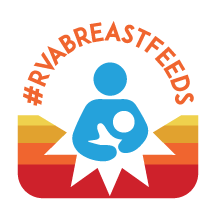Information and Resources for
Child Care Providers & Families
Because families often utilize child care facilities when their children are being fed breastmilk, childcare providers can play a critical role in helping families achieve their breastfeeding goals. This page provides links to tools to help facilities implement breastfeeding friendly policies and protocols, and to current national and state level standards for childcare providers with regard to infant feeding and breastfeeding guidelines.
Helpful Tools for Childcare Providers
Carolina Global Breastfeeding Institute, located at the University of North Carolina Gillings School of Global Public Health, has developed excellent implementation materials for child care centers, caregivers, and breastfeeding families. Their toolkit includes printable and downloadable materials divided into the following categories:
- Self-Assessment and Assessment Tools for Child Care Centers
- Educational and Reference Materials for Child Care Centers
- Educational Materials All Families
- Educational Materials for Breastfeeding Families
Access CGBI’s Breastfeeding-Friendly Childcare Tools and Recommendations for Action.
Virginia Standards
Virginia Standards for Licensed Child Day Centers
Revised Effective November 1, 2012
Guidance for infant feeding specific to Virginia childcare facilities begins on page 68 of the document in this link and is listed below as follows:
STANDARDS FOR LICENSED CHILD DAY CENTERS
22 VAC 40-185 11/12 22 VAC 40-185-570. Special feeding needs.
A. High chairs, infant carrier seats, or feeding tables shall be used for children under 12 months who are not held while being fed.
- Children using infant seats or high chairs shall be supervised during snacks and meals.
- When a child is placed in an infant seat or high chair, the protective belt shall be fastened securely.
B. Bottle fed infants who cannot hold their own bottles shall be held when fed. Bottles shall not be propped or used while the child is in his designated sleeping location.
C. The record of each child on formula shall contain:
- The brand of formula; and
- The child's feeding schedule.
D. Infants shall be fed on demand or in accordance with parental instructions.
E. Prepared infant formula shall be refrigerated, dated and labeled with the child's name.
F. Heated formula and baby food shall be stirred or shaken and tested for temperature before serving to children.
G. Milk, formula or breast milk shall not be heated or warmed directly in a microwave. Note: Water for warming milk, formula, or breast milk may be heated in a microwave.
H. Prepared baby food not consumed during that feeding by an infant may be used by that same infant later in the same day, provided that the food is not served out of the baby jar and is dated and stored in the refrigerator; otherwise, it shall be discarded or returned to the parent at the end of the day. Formula or breast milk shall not remain unrefrigerated for more than two hours and may not be reheated.
I. A one-day's emergency supply of disposable bottles, nipples, and commercial formulas appropriate for the children in care shall be maintained at the center.
J. Breastfeeding shall be permitted.

